第24章 CHAPTER 2(9)
Laws never would be improved, if there were not numerous persons whose moralsentiments are better than the existing laws. Such persons ought to supportthe principles here advocated; of which the only object is to make all othermarried couples similar to what these are now. But persons even of considerablemoral worth, unless they are also thinkers, are very ready to believe thatlaws or practices, the evils of which they have not personally experienced,do not produce any evils, but (if seeming to be generally approved of) probablydo good, and that it is wrong to object to them. It would, however, be agreat mistake in such married people to suppose, because the legal conditionsof the tie which unites them do not occur to their thoughts once in a twelvemonth, and because they live and feel in all respects as if they were legallyequals, that the same is the case with all other married couples, whereverthe husband is not a notorious ruffian. To suppose this, would be to showequal ignorance of human nature and of fact. The less fit a man is for thepossession of power -- the less likely to be allowed to exercise it overany person with that person's voluntary consent -- the more does he hug himselfin the consciousness of the power the law gives him, exact its legal rightsto the utmost point which custom (the custom of men like himself) will tolerate,and take pleasure in using the power, merely to enliven the agreeable senseof possessing it. What is more; in the most naturally brutal and morallyuneducated part of the lower classes, the legal slavery of the woman, andsomething in the merely physical subjection to their will as an instrument,causes them to feel a sort of disrespect and contempt towards their own wifewhich they do not feel towards any other woman, or any other human being,with whom they come in contact; and which makes her seem to them an appropriatesubject for any kind of indignity. Let an acute observer of the signs offeeling, who has the requisite opportunities, judge for himself whether thisis not the case: and if he finds that it is, let him not wonder at any amountof disgust and indignation that can be felt against institutions which leadnaturally to this depraved state of the human mind.
We shall be told, perhaps, that religion imposes the duty of obedience;as every established fact which is too bad to admit of any other defence,is always presented to us as an injunction of religion. The Church, it isvery true, enjoins it in her formularies, but it would be difficult to deriveany such injunction from Christianity. We are told that St. Paul said, "Wives,obey your husbands": but he also said, "Slaves, obey your masters."It was not St. Paul's business, nor was it consistent with his object, thepropagation of Christianity, to incite anyone to rebellion against existinglaws. The Apostle's acceptance of all social institutions as he found them,is no more to be construed as a disapproval of attempts to improve them atthe proper time, than his declaration, "The powers that be are ordainedof God," gives his sanction to military despotism, and to that alone,as the Christian form of political government, or commands passive obedienceto it. To pretend that Christianity was intended to stereotype existing formsof government and society, and protect them against change, is to reduceit to the level of Islamism or of Brahminism. It is precisely because Christianityhas not done this, that it has been the religion of the progressive portionof mankind, and Islamism, Brahminism, etc. have been those of the stationaryportions; or rather (for there is no such thing as a really stationary society)of the declining portions. There have been abundance of people, in all agesof Christianity, who tried to make it something of the same kind; to convertus into a sort of Christian Mussulmans, with the Bible for a Koran, prohibitingall improvement: and great has been their power, and many have had to sacrificetheir lives in resisting them. But they have been resisted, and the resistancehas made us what we are, and will yet make us what we are to be.